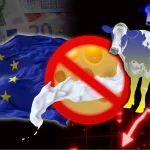Last news
 Mariya Kovalchuk: who is she, how much she earns, and what is known about the Ukrainian OnlyFans model
Mariya Kovalchuk: who is she, how much she earns, and what is known about the Ukrainian OnlyFans model
 Zelensky: Putin Has No Emotions and Acts Like a Killer
Zelensky: Putin Has No Emotions and Acts Like a Killer
 UEFA Disqualifies English Club for Breaking Multi-Club Ownership Rules
UEFA Disqualifies English Club for Breaking Multi-Club Ownership Rules
 What to eat as an athlete in summer: diet for an active body
What to eat as an athlete in summer: diet for an active body
 How to Pray for Your Son: Advice from Clergy
How to Pray for Your Son: Advice from Clergy
 Mariya Kovalchuk: who is she, how much she earns, and what is known about the Ukrainian OnlyFans model
Mariya Kovalchuk: who is she, how much she earns, and what is known about the Ukrainian OnlyFans model
 Zelensky: Putin Has No Emotions and Acts Like a Killer
Zelensky: Putin Has No Emotions and Acts Like a Killer
 UEFA Disqualifies English Club for Breaking Multi-Club Ownership Rules
UEFA Disqualifies English Club for Breaking Multi-Club Ownership Rules
 What to eat as an athlete in summer: diet for an active body
What to eat as an athlete in summer: diet for an active body
 How to Pray for Your Son: Advice from Clergy
How to Pray for Your Son: Advice from Clergy










